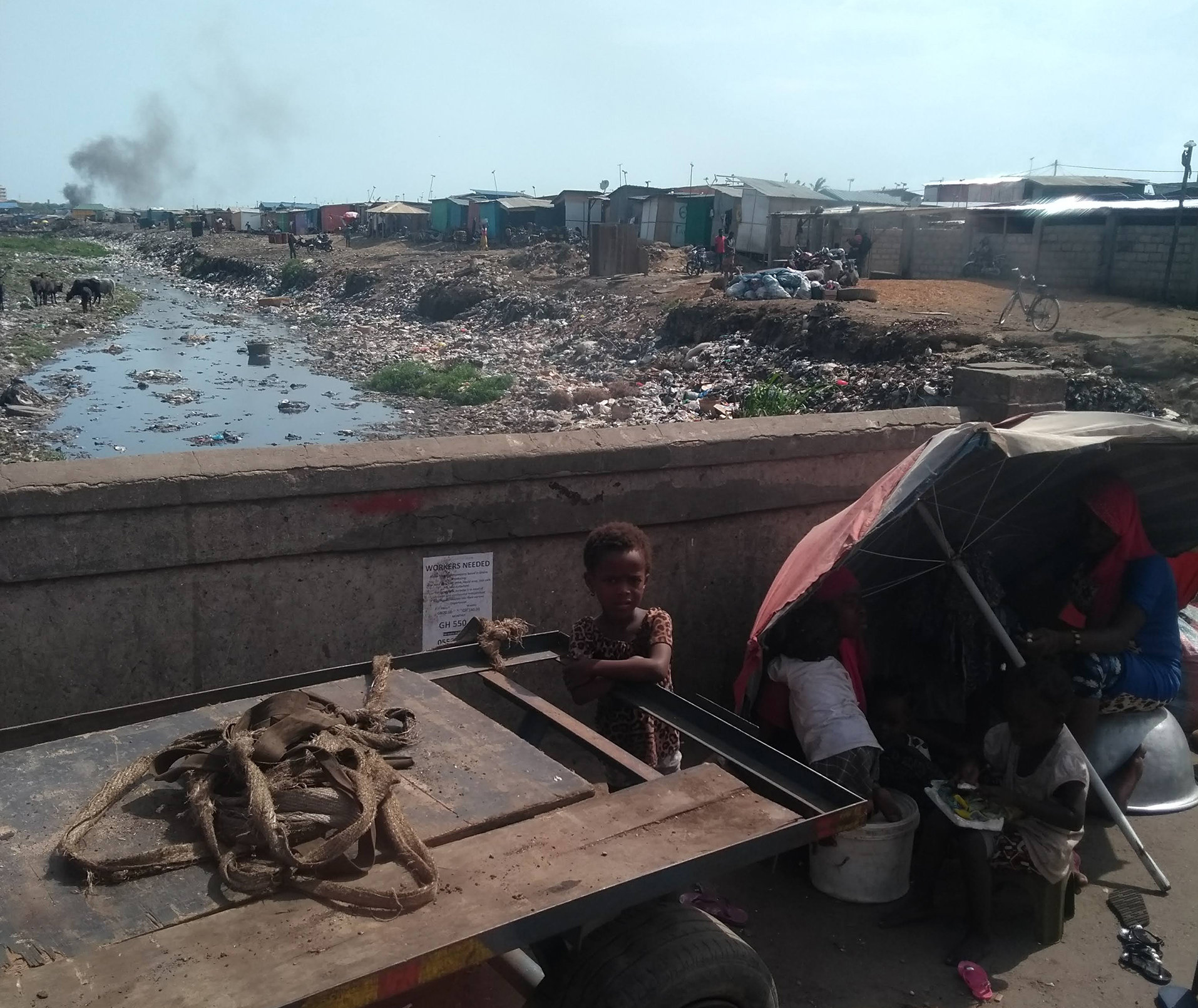A Systems Perspective on Urban Flood Resilience
How institutions contribute to urban flood resilience, illustrated for the Greater Accra Metropolitan Assembly, Ghana
This study looks at the topic of flood resilience and the role of the World Bank. It presents a framework for evaluation in the context of systems thinking, which provides an integrated overview about how institutions ‘across the board’ contribute to improving flood resilience. These insights can be used to identify and discuss the influence of the World Bank.

To illustrate what insights the framework can bring, it has been applied to the case of Accra, Ghana, a flood prone area. The study should be considered as a first, explorative exercise to combine insights from a geographical and institutional analysis, in order to develop an integrated perspective on urban flood resilience, related to the operation of an international donor. Although preliminary in nature, the study identifies the challenges surrounding geographically widespread flood vulnerabilities and complex institutional contexts at the ministerial, inter-sectoral and city levels involved in resilience efforts. While it is difficult to establish the perceived and actual influence of the World Bank’s interventions on urban resilience, the case study illustration shows how its contribution towards institutional capacity strengthening, coordination and collaboration in flood management is locally recognized. Despite the considerable challenge of operationalizing the issue of urban flood resilience and donor influence, the case study indicates that urban flood resilience is first and foremost a cross-sectoral, cross boundary and cross jurisdictional issue. Although steps are being taken towards greater streamlining of institutional efforts, institutional fragmentation and coordination challenges remain.
Facts
| Funder: | The World Bank |
| Programme: | The Independent Evaluation Group |
| Overall budget: | € 34.750 |
| Grant amount: | € 34.750 Contribution to TU Delft: € 34.750 |
| Role TU Delft: | Lead partner |
| Project duration: | June 2018 - September 2018 |
| TU Delft researchers: | Dr. Aksel Ersoy Dr. Nikki Brand Prof.dr. Ellen van Bueren |
Project partners
Kwame Nkrumah University of Science and Technology